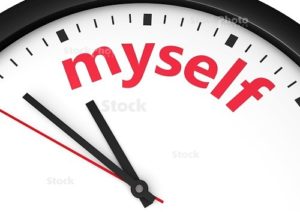People often find it hard to prioritise themselves or to get their own needs met. It can become easier to focus on everyone and everything else. Rather then stopping and actually taking care of yourself. Ironic when you think about it. Because after all the most important relationship we have is the one we have with ourselves.
I often say to clients what do you do for you?? And more often then not the answer is nothing – or very little.
Self-care is something I talk about a lot in my work. And one of the goals of therapy is that people will leave equipped with a self-care toolbox. In the beginning of therapy people often wonder I mean when I say this, because self-care is something they have never really thought about. However, throughout their therapeutic journey people will often start saying no to commitments, making time for themselves, recognising when they need to slow down etc. It is however something that is very important for people to be aware of. Counselling itself is often an important part of that self-care – although there are also a lot of other things.
Self-care simply means taking care of oneself. Or as we often phrase it at your counselling service ‘being kind to yourself’.
Think about your week. How often do you put yourself first?? How often do you speak kindly to yourself? How often do you pencil in you time in your diary? How often do you simply do what is best for you?
You will often see people rushing around due to work or family commitments. In addition to this people often try and pack too much into their days and weeks, barely stopping to relax or take some time out. Domestic choses, events that need attending (social and professional), hectic daily schedules and financial pressures can all take over, and as a result people do not have any time in their week for themselves.
This is often a common theme for people that are in therapy. Numerous reasons can cause the need for counselling, ranging from relationship issues, bereavement / loss to eating disorders and addictions. However, one thing that the majority of clients have in common is that they feel they never have any time for themselves, and they don’t have the ability to relax and slow down.
Clients can be encouraged to slow down and take time for themselves, but they will often say that they cannot, they are too busy or have too much to do. In reality life is like that for a lot of us, and a lot of the time. But the important part is being able to recognise that not everything can be done in one day, that things can wait, and that making an appointment with yourself is just as important as making one with someone else.
Good self-care can involve a range of things. Here are some of the most important examples –
- Taking the time to eat properly (meaning everything in moderation),
- Don’t indulge in self-destructive behaviours (such as too much alcohol)
- Make time for enough sleep every night. (Create a good bedtime routine)
- Take time for yourself – such as reading, a bath, watching a favourite program etc
- Get outside each day and go for a walk
- Take some time throughout your week to exercise (again in moderation)
- Make some time for your psychological well being too (yoga, Pilates mediation etc)
- Listen to music that makes you feel good
- Say no to the things you don’t want to do
- Be around those that bring out the best in you
- Avoid toxic people and toxic situations
- Invest your time wisely
- Create space in your diary just for you
- Don’t over commit – either with work or socially
- Recognise when your tired and need to slow down
- Talk about your feelings – learn how to share what is going on for you
- Keep a journal – write down the things that are worrying you or causing you stress
- Create lists and learn how to prioritise – not everything needs to be done today
- Make sure you use the support network around you (don’t isolate yourself)
- Learn how to relax and make it a valuable part of your week
- Start therapy if you need too – you will be amazed at the difference it makes
It’s important to recognise that self-care is a personal thing and not everyone will enjoy the same things. They key is finding what works best for you and then ensuring that you make time for that in your week.
Once you start to implement some of the above in your life – you will be amazed at the difference it makes. Looking after yourself is a lifelong commitment and the impact it has is so positive. It is not easy making a change – but if you don’t start then the consequences are pretty severe. When people do not look after themselves, they end up really stressed out, often very low and depressed, their anxiety rises and as a result they start to really struggle with managing life. Sleep will be affected. Relationships will suffer. Happiness will be impacted. And fundamentally health will go downhill. The body and mind is not a machine. There is only so long both can keep going without real care. There will be warning signs along the way – such as burn out, depression, anxiety, insomnia, headaches, illness etc. These are all signs that you need to slow down. To re charge, take stock and look after yourself. If these happen – then make sure you listen. Because if you do not – you could be heading for psychological or physical break down. Sometimes both.
So, start today – make the changes. It all begins with something small. Say no to someone or something. Press pause in your day. Reflect. Rest. Recharge. However It looks – make it happen. There is nothing more important then taking care of yourself. We all lose our way sometimes – and often life can take over. That makes us human. If that happens – do not beat yourself up about it. Reframe it. Step back and make the changes that you need to feel better in yourself.
Remember – the most important relationship you have is the one you have with yourself.




